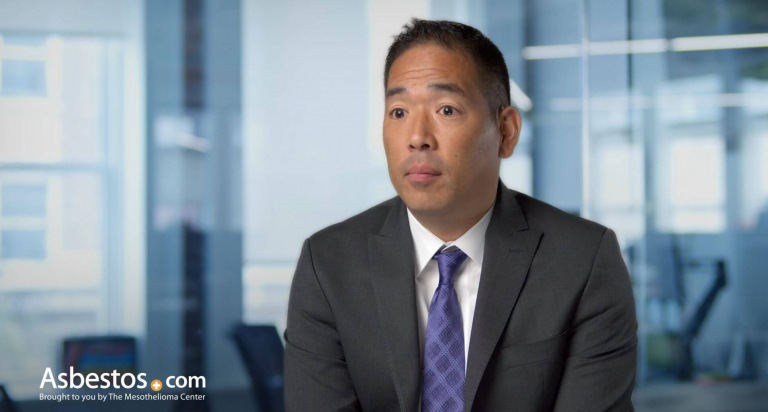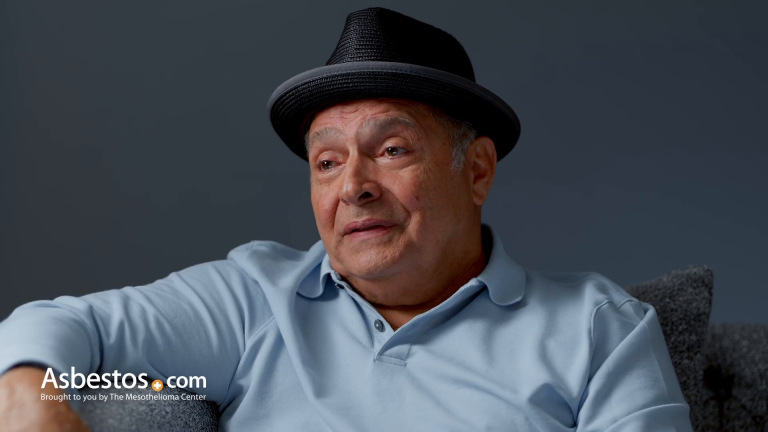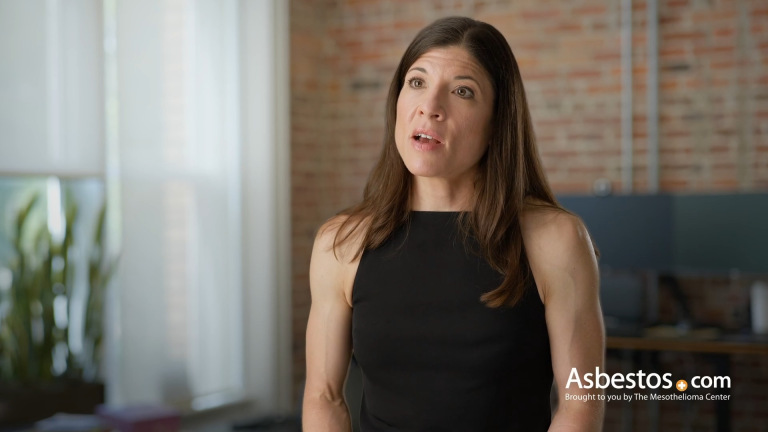John Fiala, a Navy vet, served on the USS Saratoga. He was told surgery wasn’t an option for his mesothelioma. At first, chemo slowed the tumor’s growth, but then it started again. But a clinical trial with Opdivo and Cyramza is working well for him now.
Mesothelioma Treatment
Top treatments for mesothelioma include surgery, chemotherapy and radiation therapy. For advanced cases, doctors may suggest immunotherapy or targeted therapy. Palliative care helps relieve symptoms and improve quality of life.
How Is Mesothelioma Treated?
The goal of all mesothelioma treatments is to get rid of tumors or kill cancer cells. Doctors perform surgery to remove tumors. Chemotherapy and radiation destroy cancer cells. And immunotherapy boosts your immune system. Most patients get a mix of these “gold standard” treatments.
- Primary treatment options include surgery, chemotherapy, radiation therapy and immunotherapy.
- The National Cancer Database shows that 27.6% of pleural patients qualified for surgery from 2004 to 2020.
- Immunotherapy and chemotherapy are effective treatments for advanced cases.
- Clinical trials offer access to emerging therapies.
- Palliative care aims to manage symptoms and improve quality of life.
The type of mesothelioma treatment you get depends on how far your cancer has spread, your health and other factors. Because mesothelioma is often diagnosed at later stages, many therapies focus on managing symptoms.
Primary Types of Mesothelioma Treatment
The primary types of mesothelioma treatment include surgery, chemotherapy, radiation and immunotherapy. One treatment typically isn’t enough to control the cancer. But combining them can help patients live longer.
Multimodal therapy for mesothelioma combines treatments to improve patient outcomes. People with an early stage of cancer are the best candidates for multimodal treatment. Those with other diseases or poor health may not tolerate the side effects of multiple treatments.
Doctors explain that multimodal therapy is different for everyone. “Mesothelioma treatment is quite complex,” says thoracic surgeon Dr. Jacques Fontaine. Doctors look at each patient’s unique diagnosis to create the best plan. Depending on your response, your mesothelioma specialist may add or remove therapies throughout your treatment journey.
Depending on stage, age, a patient’s overall health and other factors, most mesothelioma doctors will recommend that treatment begin with surgery.
Get specialized treatment from top mesothelioma doctors.
Find a Doctor NowDr. Jacques Fontaine, Pleural Mesothelioma Specialist

Surgery
Surgery is an effective treatment for mesothelioma because it removes tumors, damaged tissue and fluid buildup. The goal is to remove as much cancer as possible to improve survival. It can include removing a whole or part of a lung and aims to reduce tumor mass and symptoms.
Surgery can offer several benefits like helping you live longer, managing symptoms and making daily life easier. But, like any surgery, there are risks involved. These can include getting an infection, bleeding and damaging nearby tissue. Talk to your doctor about your goals and see if surgery is right for you.
- Cytoreductive Surgery with Heated Chemotherapy
- Extrapleural Pneumonectomy
- Pleurectomy and Decortication
Not all patients qualify for surgery. Typically, those who can have mesothelioma surgery are in good overall health. They usually have the disease at an early stage with tumors that can be removed.
Peritoneal mesothelioma survivor Susan Dickman was diagnosed with stage 4 cancer in 2012 and was told she didn’t qualify for surgery. She sought a second opinion with surgical oncologist Dr. Edward Levine, who believed she could benefit from surgery with heated chemotherapy. “We chose a doctor who had done more of these surgeries than anybody else. Numbers count for any surgery,” said Dickman.
Chemotherapy
Chemotherapy uses strong drugs to kill mesothelioma cells. It helps shrink or stop tumors from growing. A 2021 study in Scientific Reports shows how chemotherapy treats all cell types of pleural and peritoneal mesothelioma.
For patients who can’t have surgery, chemotherapy is usually the go-to treatment. It’s also an option for anyone with mesothelioma, no matter the disease’s stage. Those in the later stages or who aren’t good candidates for surgery might get the most out of chemo. Chemotherapy can be given throughout the body or target the mesothelial lining.
- Alimta (pemetrexed)
- Carboplatin
- Cyclophosphamide
- Doxorubicin
- Gemzar (gemcitabine)
- Platinol (cisplatin)
- Raltitrexed
- Vinorelbine
Some patients may get another drug or therapy on top of chemotherapy. Adding a targeted drug like Avastin or Tumor Treating Fields can boost survival rates.
Our mesothelioma survey results show that 32% of respondents went through chemotherapy, making it the most popular mesothelioma treatment. The survey also reveals that Alimta and cisplatin are the chemotherapy drugs most patients get.
Radiation Therapy
Radiation therapy uses high-energy, external beam radiation to kill mesothelioma cells and shrink tumors. It’s often paired with other treatments or used after surgery to prevent the cancer from coming back. One of the main benefits is that it reduces symptoms and extends life expectancy. But it can also cause fatigue, skin irritation and damage to healthy cells.
- Brachytherapy
- Intensity-modulated radiation therapy
- Photoradiation therapy
- Volumetric-modulated arc therapy
Radiation is often an option for patients who can’t have surgery or chemotherapy. Even if you had surgery to remove mesothelioma tumors, you may still qualify for radiation therapy.
Patients eligible for radiation therapy include those with localized or advanced-stage mesothelioma. However, only 12% of our survey’s respondents received radiation.
Immunotherapy
Immunotherapy for mesothelioma amplifies your body’s immune cells. This boost helps them locate and destroy cancer cells. The combination of Opdivo and Yervoy pushes your immune system to fight mesothelioma that can’t be removed with surgery.
Immunotherapy has revolutionized survival for patients with cancers that were historically very difficult to treat, like mesothelioma.
Immunotherapy may cause fewer or milder side effects than chemo. Side effects can include fatigue and skin rashes. In some cases, inflammation can affect sensitive organs.
Mesothelioma survivor Barbara Lapalla says her survival is thanks to Keytruda (pembrolizumab), an immunotherapy drug she receives systemically every three weeks. “I tell people today, I’m a walking miracle,” said Lapalla, who was diagnosed in 2018. “They don’t believe in miracles. Then they see me.”
Emerging Treatments and Clinical Trials
Mesothelioma clinical trials test new and emerging treatments. They also test ways to improve existing treatments, including new combinations in multimodal therapy.
Participation offers a unique opportunity to access cutting-edge therapies. Clinical trials can benefit those who have exhausted or are ineligible for other treatments. Your doctor can help determine if you’re eligible and find an open trial.
Mesothelioma vaccine therapy is only available in clinical trials right now. It works by helping the immune system identify and destroy cancer cells. This is done by recognizing certain markers on the cancer cells. Some scientists believe that just as damaged genes can cause cancer, changing genes in the right way with mesothelioma gene therapy might help treat it.
One type of gene therapy is called suicide gene therapy. It involves modifying a virus or a bacterium, like E. coli, to deliver a cancer-killing gene directly to mesothelioma cells. Another promising treatment is Ofev, a drug for pulmonary fibrosis that’s being tested in clinical trials for pleural mesothelioma and is now in its third phase.

In this free recording, learn how this latest FDA-approved combination therapy offers new hope to patients.
Get a RecordingPalliative Care
Palliative care aims to ease mesothelioma symptoms and improve well-being. It’s beneficial at any stage of the disease. This type of care often combines pain management with low-dose traditional mesothelioma treatments. For example, low-dose chemo can shrink tumors before major surgery. Sometimes, surgery is needed to insert a shunt or catheter. These devices drain fluid from the chest and make breathing easier.
A mesothelioma palliative care team can include oncologists, surgeons, nurses, pain experts, physical therapists and dietitians. These specialists work together to ensure you receive the best and most appropriate care possible. That may include exercise, physical or respiratory therapy or even complementary therapies such as acupuncture, massage and relaxation techniques. These can help reduce symptoms of mesothelioma and improve overall quality of life.
- Alternative therapies
- Catheter or shunt placement
- Immunotherapy
- Low-dose chemotherapy
- Pain medication
- Pleurodesis
- Respiratory therapy
Mesothelioma survivor Virginia Beach used palliative care when shortness of breath returned 10 years after she underwent chemotherapy. “After a while, the doctor told me my lungs were clear,” Beach said after palliative care. Chemotherapy is the only cancer treatment that has contributed to her long survival. “My oncologist doesn’t say it’s in remission. He says it’s in control.”
“Palliative care is becoming a bigger topic these days, especially in cancer. It’s comfort care, but it’s also pain management. It’s something a patient can do and start from the beginning on the day they’re diagnosed,” said Director of Hospice Care Amy Pelegrin. “I recommended it because I just don’t see a need for a patient to suffer or be in pain when they don’t have to be.”
What to Do Next: Finding the Best Mesothelioma Treatment
The best way to treat mesothelioma is based on the type and stage of the cancer, as well as the patient’s overall health. One of your top priorities after getting a diagnosis is finding a skilled doctor and a good cancer center. You’ll want to do this right away, since treatment works better when you start it sooner.
Receiving a mesothelioma diagnosis can be really tough for you and your loved ones. Don’t forget that treatment options are out there, and our Patient Advocates are here to help you navigate the next steps in your journey.
In addition to offering support in finding mesothelioma specialists, our Patient Advocates can help you with insurance, file VA claims and access other resources to cover treatment costs. They can also schedule appointments and share information about clinical trials for new and emerging treatments.
Common Questions About Mesothelioma Treatment
- What is the most common treatment for mesothelioma?
-
Chemotherapy is the most common treatment for mesothelioma. The majority of people with mesothelioma qualify for chemotherapy. Fewer people qualify for surgery and radiation therapy.
- How effective is mesothelioma treatment?
-
The effectiveness of mesothelioma treatment depends on many factors. The type of mesothelioma, its stage and a patient’s overall health and age impact treatment outcomes. Combining treatments in multimodal therapy improves life expectancy.
- Can mesothelioma be cured with treatment?
-
While no treatment can cure this type of cancer, therapies can improve survival and quality of life. Partial remission is more common with this cancer than full remission. Patients in partial or full remission often receive maintenance therapies. Surgery has the potential to remove most of the cancer. Chemotherapy, immunotherapy and radiation can help control tumor growth and spreading.
- What happens if mesothelioma goes untreated?
-
Untreated mesothelioma grows and spreads more quickly than when treated. The growth rate varies based on the cancer’s stage, location, tumor grade and cell type. While some patients may experience a slower progression, most cases progress rapidly.
- What are the common side effects of mesothelioma treatment?
-
Common side effects of mesothelioma treatment include fatigue, nausea, mouth sores and loss of appetite. Radiation may cause skin irritation and shortness of breath. Surgery may lead to pain, infection and complications. Immunotherapy can cause flu-like symptoms and rashes.









